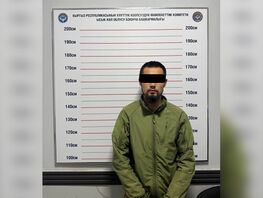Over the first eight months of 2025, at least 2,318 people sought medical care in Bishkek for animal bites, compared to 1,926 in 2024. The Center for State Sanitary and Epidemiological Surveillance reported.
Of those bitten, 34.4 percent were children under 14, while 65.6 percent were adolescents and adults. The majority of cases involved dog bites (1,377 people), including 317 incidents (23 percent) from unknown dogs. Cat bites and scratches accounted for 740 cases, including 189 (25.5 percent) from unknown cats.
During 2025, 16 victims with multiple bites in dangerous locations — including the head, shoulders, upper limbs, and cases involving partial loss of the upper lip or a finger — were hospitalized. All patients received timely, qualified medical care, preventing rabies and potential complications.
Rabies remains one of the most dangerous viral diseases affecting the nervous system of humans and animals, and is fatal in both. In Kyrgyzstan, primary carriers include dogs and cats, as well as livestock such as cattle, horses, sheep, and goats.
Infection occurs when saliva from an infected animal enters broken skin or mucous membranes. Initial symptoms usually appear within two to three months, but can occur as early as a week or as late as a year after exposure.
Early signs resemble a common cold, including fever and general malaise, along with tingling, burning, or numbness at the bite site. As the disease progresses, patients may experience extreme agitation, hallucinations, excessive salivation, vomiting, hydrophobia, and sensitivity to bright light and loud sounds.
The only preventive measure against rabies is vaccination.
In the event of a bite, scratch, or saliva exposure, the wound should be immediately washed thoroughly with running water and soap, covered with a sterile bandage, and medical care sought from a surgeon.
Patients are advised to visit the rabies consultation office at the Sports and Rehabilitation Center, located at 41, Manas Avenue, for an assessment and, if necessary, an anti-rabies vaccination course. Medical staff are on duty even on Sundays and public holidays.
The center reminds to avoid contact with stray animals to reduce the risk of rabies. «Do not delay visiting a doctor after a bite, scratch, or saliva exposure. It is crucial to complete the prescribed anti-rabies vaccination schedule without missing any doses. Rabies is incurable. World Rabies Day is marked on September 28,» the center added.






